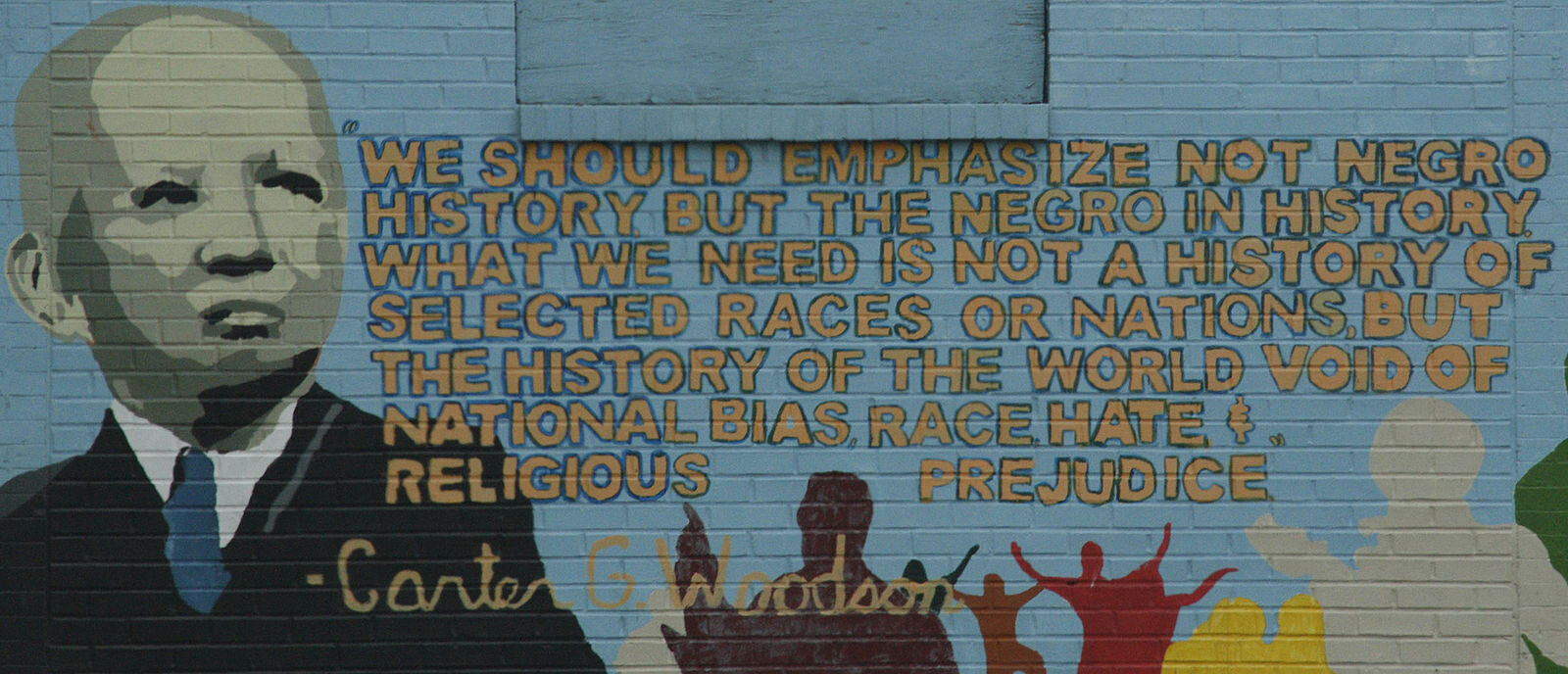What Does It Mean to Celebrate Black History Month?
Lisa Alvarado, our Director of Facilitation, breaks down the history behind Black History Month and what it really means to celebrate it.
This February, as more organizations created messaging to acknowledge Black History month for the very first time, in the wake of America’s racial reckoning in the summer of 2020, it's clear to me that many aren’t quite sure of the purpose of the celebration.
Whether crafting statements about supporting their Black employees or their newfound commitments to advancing DEI (Diversity, Equity, and Inclusion) in their organizations and even centering the incidents of black death that “woke” them-up - they seem to be missing the point. While encouraging and a start, these messages include no actual history or discussion of the Black experience in America and even border on distilling that experience down to tragedy.
Black History Month was first conceptualized by historian Dr. Carter G. Woodson. Woodson was the second Black American to earn a Ph.D. from Harvard University following W.E.B. Dubois, and also the only person of enslaved parentage to earn a Ph.D. in the history of the United States.
Dr. Carter G. Woodson
As Woodson embarked on his own educational journey, he recognized a glaring omission in the teaching of American history - Black Americans and their contributions to its forming, history, and culture. In an attempt to fill these gaps and celebrate the accomplishments of Black Americans, he formed the Association for the Study of Negro Life and History in 1915, 50 years after 1865, when the last slaves in Texas gained their freedom.
Under his leadership, the Association debuted the Journal of Negro History (1916) a home for research and publication by black intellectuals. By 1926, Dr. Woodson proposed Negro History Week, which we now celebrate as Black History Month.
“Whether crafting statements about supporting their Black employees or their newfound commitments to advancing DEI (Diversity, Equity, and Inclusion) in their organizations and even centering the incidents of black death that “woke” them-up - they seem to be missing the point.”
In essence, Black History month is a time to celebrate all the accomplishments and contributions of Black Americans in spite of their enslavement, disenfranchisement, subjection to Jim Crow and segregation, racialized violence, being barred access to live, learn, shop, and work where they please. It is about their excellence and innovation, across industries from science to the arts. You don’t have to be a history buff to celebrate and learn this Black History Month and all year long.
Here are just a few ideas:
Make it personal - Regardless of your industry or passion, there is a connection to Black history. Simply google your field and Black Americans, and be prepared to learn about the ways Black folks have contributed through invention or innovation.
History is living - Shift your perspective, yesterday is history, too. While Black Americans of the distant past certainly had a story to tell, Black history is not only the 19th and early 20th century. In addition to the trailblazers and leaders of those periods, there are Black Americans making history every day in business, politics, tech, media, and the arts.
Celebrate Black joy, beauty, excellence, and innovation - Black History is not synonymous with the struggle against racial injustice. For every Harriet Tubman, Frederick Douglass, Martin Luther King, Jr., and Rosa Parks make sure you educate yourself on a black scientist, artist, poet, or opera singer. It’s even more brilliant when you recognize the way artists used their art as agency to speak out against the Black experience in America. Read Black books, listen to Black music, eat Black food!
Find the trailblazers - Have you ever been watching the Academy Awards and heard a Black actor thank those that came before them, saying they stand on their shoulders? The same way we speak about women breaking glass ceilings now, there was always a Black pioneer who came first to break down walls during times when they couldn't enter the front of an establishment, have a cup of coffee at a lunch counter, or matriculate to a university. There would be no Beyonce without Josephine Baker, no Kamala Harris without Shirley Chisolm, etc.
Shirley Chisholm
Black people are not a monolithic group - The majority of Black American’s ancestry is troubling to trace due to being descendants of slaves, as such they are often painted with a broad stroke as “simply” Black. Even for these Black Americans, there are rich regional cultures of dialect, religion and worship styles, food, and more. Beyond this, Black Americans hailing from the Diaspora - the Caribbean, Latin America, and Africa have contributed to American History from the beginning. For instance, many leaders of Black Freedom movements from Pan-Africanism to Civil Rights had Caribbean roots; Marcus Garvey, Malcolm X, and Stokley Carmichael, to name a few. Or, Jean Baptiste Point du Sable, the founder of Chicago!
Black History is American History, period. It’s our job to educate ourselves continually, not just one month a year.



